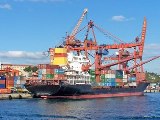Foreign investors interested in shipping activities in China should be familiar with the local legislation for maritime industry. The industry’s legal activity is regulated by the Maritime Safety Administration of the People’s Republic of China. Our Chinese lawyers can provide you with an in-depth presentation on the maritime and shipping legislation applicable in China.
Table of Contents
Shipping Incoterms in China
Activities in the maritime andshipping industry are regulated by a set of measures, designated to protect the cargo throughout the transportation period. Investors who are interested to transport various goods and products from China should know that the cargos are regulated by a set of international standard codes, which have been adopted and enforced by the Chinese shipping legislation.
The international standard code, called Incoterms, describe the shipping conditions between the supplier and the importer; at the same time, the Incoterms stipulate the obligations incurred by the buyer and the seller and establish where a delivery should be done or which of the parties assume responsibility for the insurance cost of the freight.
For example EXW (Ex Works) is an Incoterm which represents the factory price of the products manufactured in China, without adding the shipping cost, for which the buyer is fully responsible. CIF (Cost Insurance Freight) allows the Chinese supplier to deliver the products to the port and prepare the export clearance; if you need more details on the incoterms provisions, our Chinese law firm can provide you with information on this matter.
Shipping documentation required in China
When preparing a cargo to be exported from China, the following documents are compulsory, for most of the types of products transported:
• bill of landing – the document is issued by the transportation company which has to specify details related to the shipping company, the seller, the buyer, products delivered and their volume, but also the incoterm under which the cargo is transported;
• commercial invoice – the document specifies the value of the cargo and the products carried; the commercial invoice is used to compute the Value Added Tax and custom duty;
• packing list – provides information on the products, their volume and quantity;
• certificate of origin – testifies the origin of materials or products shipped; the document is compulsory for various types of products, such as raw materials, chemicals or food products.
If you need further information on the shipping legislation in China, please contact our Chinese law firm for assistance on this matter. In addition, if you are interested in trademark registration in China, you can use the services of our lawyers. It is an important aspect of doing business in China because it safeguards your product and intellectual property. A complete understanding of the country’s trademark laws and regulations is required to effectively register a trademark in this country. Consult our attorneys for more information.

